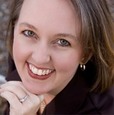The idea was born in a bubble bath. Donna Collins, now the Executive Director of The Global Peace Project, contemplated an idea for a peace enhancement study that could transform the city of Dallas, whose crime rate ranked number one for cities of more than a million people for ten consecutive years.
In my Voices of Peace interview with Donna, she says, “We were not interested in a crime study. We were interested in a ‘peace enhancement’ study that just happened to have the side effect of reducing crime. We wanted our concentration to be on how we create a better community, and how we make individuals, families, the neighborhood, the community and the city into a more cooperative, collaborative and calmer place.”
September 21 is the day recognized by the United Nations as “International Day of Peace.” It is a day devoted to “commemorating and strengthening the ideals of peace both within and among all nations and peoples,” according to a U.N. proclamation. It is a day dedicated to celebrating and supporting peacebuilding initiatives like The Global Peace Project.
“’Peacebuilding’ is different from ‘peacemaking’ and ‘peacekeeping’ in that it focuses on creating a long-term culture of peace, rather than solving existing conflicts or preventing old ones from re-occurring. Peacebuilding activities aim at building understanding and tolerance between individuals, communities and societies and establishing new structures of cooperation,” according to the U.N. website for International Day of Peace.
For Donna Collins, her bubble bath brainstorm led to a grassroots peace education initiative led by nationally recognized facilitators and qualified volunteers in the community. Free workshops introduced participants to skills like visioning, meditation, communication skills, EFT (Emotional Freedom Technique), HeartMath, and more.
The initial peace study began in June 2008 and culminated in an event on April 4, 2009 recognizing the completion of the Season of Peace and Non-Violence. By May 2009, The Dallas Morning News headlines reported for the first time: “Dallas' crime rate no longer the highest among large U.S. cities.”
Donna remembers, “We actually continued (the study) for a ten-month process and the crime rate in Dallas continued to drop. People would say, ‘Are you claiming that what you did lowered the crime rate?’ Finally, I got brave enough to say, ‘Yes, I think we really did it. It wasn’t just us, but it also wasn’t just the new burglary unit. It wasn’t just the addition of policemen here or there. Yes, we definitely did that.”
Garland Landrith, a faculty advisor for The Global Peace Project, explains the concept in his Voices of Peace interview. “What this tells us is that what we do inside makes a big difference on the outside. The other big aspect of this is numbers, the same people doing the same thing at the same time.”
For the past four months, I have been interviewing inspired peace leaders like Donna Collins to discuss the new paradigm for peace. From Barbara Marx Hubbard, to His Holiness Karma Kuchen Rinpoche, the messages shared a consistent theme:
Yes, Peace Day is a time to establish a ceasefire, both politically and personally. It’s a time to let go of old grievances, forgive, and from the inside out, set down our weapons.
But to have a lasting peace, a sustainable peace, it requires us to do more than stop fighting. It requires us to become visionaries, to see and establish a new world order that has never existed before in the history of humankind.
For peace to have a meaningful, lasting future on our planet, we must cultivate peace without requiring the impetus of violence. It requires us to open our imagination, join together, and find new and creative ways to expand joy, abundance, and compassion for all living beings without waiting for a crisis.
In our Voices of Peace interview with Apollo astronaut Edgar Mitchell, we talked about the consciousness of peacebuilding. “There is no certainty whatsoever that this civilization and this planet has to survive,” he says. “We’re creating the science that shows that transcendence is a doable thing. We can do it. We just have to learn to practice it.”
Mindy Audlin is the leader behind “Voices of Peace: 21 Visionary Leaders Engage in Humanity’s Most Urgent Conversation,” a peace-awareness campaign and fundraiser benefiting The Global Peace Project and other peacebuilding organizations. She is also the founder of The What If Up Club, and host of “The Leading Edge” on Unity.FM.

Post new comment
Please Register or Login to post new comment.